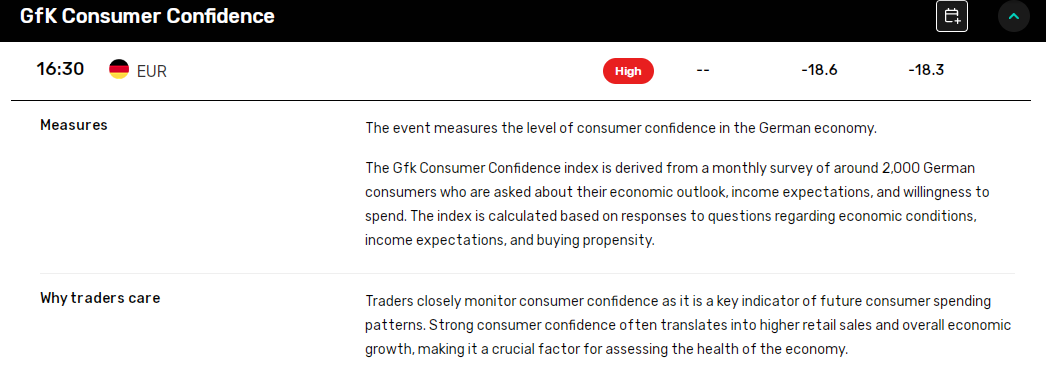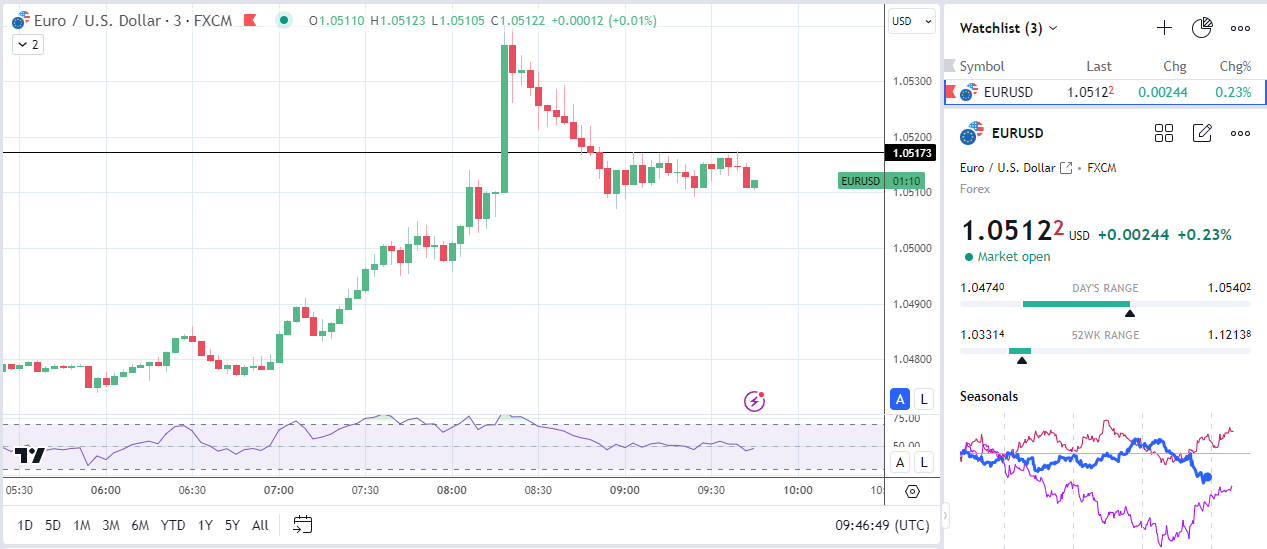“The GfK Consumer Climate Indicator plunges, signaling rising concerns over jobs, spending, and recession risks.”, — write: www.fxempire.com
- Germany’s GfK Consumer Climate Indicator plunges to -23.3, signaling deepening recession fears in late Q4 2024.
- Income expectations hit a new low since February 2024, falling 17.2 points to -3.5 due to rising unemployment.
- Private consumption risks intensify as it accounts for over half of Germany’s GDP, threatening economic growth.

In this article:


- Income expectations declined sharply, sliding by 17.2 points to -3.5 points, the lowest level since February 2024.
- Rising unemployment and a weak wage growth outlook impacted income expectations.
- Concerns about the labor market weighed on the willingness to buy indicator, which declined by 1.3 to -6.
- The pullback in income expectations led to a rise in the willingness to save indicator, reflecting reduced consumer spending intentions.
- Notably, the economic indicator declined by 3.8 points to -3.6 points, also the lowest level since February 2024.
Nuremberg Institute for Market Decisions (NIM) consumer expert Rolf Buerkl remarked on the November survey-based data, saying,
“Consumer uncertainty has increased again recently, as evidenced by the rising willingness to save. There is also another uncertainty factor: concerns about job security in Germany are growing. The reasons for this are certainly the job cuts reported by industry and the relocation of production abroad.”
Implications for Inflation and Economic Growth The survey underscores a softer inflation outlook, driven by falling consumer spending. Private consumption, which accounts for over half of Germany’s GDP, could see further declines, intensifying recession risks. The ECB must also grapple with deteriorating labor market conditions, now compounded by the potential for new US tariffs.
Pictet Wealth Management Head of Macroeconomic Research Fred Ducrozet commented on the potential impact of increased global protectionism, stating,
“If the global economy is more protectionist this will impair the growth rate of the European economy and that will be likely to reduce inflationary pressures.”
Economic Data Reflects Broader Eurozone Weakness November’s private sector PMIs highlighted Germany and the Euro area’s economic challenges. The Eurozone HCOB Services PMI slid from 51.6 in October to 49.2 in November, while the manufacturing sector contracted at a sharper rate. Germany’s service sector suffered a similar fate, potentially supporting arguments for more aggressive ECB rate cuts to bolster the Euro area economy.
EUR/USD Reaction to German GfK Consumer Climate Survey Ahead of the German GfK Consumer Climate report, the EUR/USD briefly fell to a low of $1.04740 before climbing to a high of $1.05402.
However, EUR/USD reacted to the GfK Consumer Confidence report, initially rising to a post-report high of $1.05175 before falling to a low of $1.05105.
On Wednesday, November 27, the EUR/USD was up 0.23% to $1.05122.

About the Author
With over 20 years of experience in the finance industry, Bob has been managing regional teams across Europe and Asia and focusing on analytics across both corporate and financial institutions. Currently he is covering developments relating to the financial markets, including currencies, commodities, alternative asset classes, and global equities.






Advertisement
